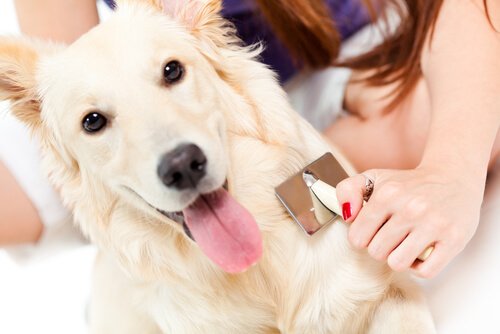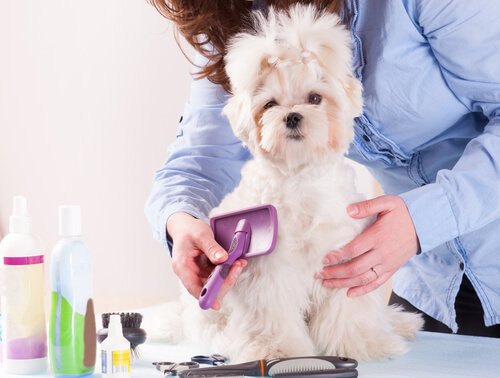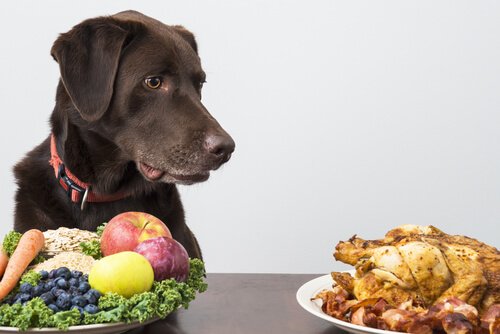What To Do If Your Dog Is Losing His Hair?

Dogs naturally shed their coat twice a year, especially dogs with long hair. However, if your dog is losing his hair much more frequently, it’s important to find out what’s causing it. A dog’s coat is a reflection of his physical condition. A dog is healthy when his coat is bright and silky, he’s in good health. However, if it’s dull and dry, this could be the result of a health condition.
A dog’s coat also requires special care such as washing and brushing. Doing this can also be a good way to detect irregularities when your dog is losing his hair.

Why Might Your Dog Be Losing His Hair?
Some breeds can lose quite a large amount of hair. This is particularly common in long-haired breeds such as the Golden Retriever, Siberian Shepherd, and Labrador. However, when a dog loses his hair outside of his normal cycle, you find out what might be the possible causes:
- Natural causes. The first reason a dog loses his hair is to renew his coat.
During autumn and spring, it’s very common for an animal to shed his fur. This way, he will get rid of his old hair and make way for the new hair.
The amount of hair that an animal sheds can depend on the breed and season. In some cases, it’s very common to find large amounts of hair lying around everywhere.
- Poor diet. The second most common reason for hair loss in dogs is a poor diet. This has nothing to do with the amount of food he eats but whether or not he’s getting enough nutrients.
If a dog doesn’t consume enough protein, he will have dry and brittle hair. Likewise, larger portions of fats help strengthen his coat. Omega 3 fatty acids and vitamins A, B, and C are fundamental for a healthy coat.

Not drinking enough water can also be a cause of hair loss. Dehydration causes the skin to dry and weakens your dog’s hair.
- Hormonal or emotional conditions. Regarding illnesses, anaemia can be a cause of hair loss. Anaemia is a hormonal condition caused by a poor diet. It can also be caused by emotional situations like stress or anxiety.
Dogs that experience sudden changes in their routine can suffer from hair loss. When the cause is due to an emotional condition, a dog tends to recover as soon as he returns to his normal routines and habits.
Skin Conditions and Parasites
- Skin Conditions. Skin conditions can cause hair loss. The most common is scabies, which is shown by localized hair loss and red, irritated skin. If this takes place, it’s best to talk to your vet.
- Parasites. Both internal and external Parasites can cause hair loss. Dogs which are sensitive to flea bites may excessively scratch themselves, which in turn causes them to lose hair.
How to Prevent Hair Loss
- Regular baths. Giving your dog a bath on a regular basis by using shampoo for dogs, will help control hair loss. Make sure you don’t give your dog too many baths because the shampoo can also cause dry skin.
Some people like to use anti-hair loss products. However, it’s probably best to seek advice from a specialist before you decide to do this.
- Regular brushing. Brushing a dog’s hair isn’t just good for building a bond between dog and owner, it’s also good for his normal shedding cycle.
By brushing your dog, you’ll be able to remove a lot of dead hair. It’s important to use the right brush depending on your dog and his hair type. A brush with close thick teeth is perfect for dogs with short hair, while a brush with thick separated teeth will prevent knots on dogs with long hair.
- Balanced diet. A balanced diet is important for any dog that experiences hair loss.
- Regular visits to the vet. If you visit your vet on a basis, you’ll have a better chance of spotting any irregularities.
